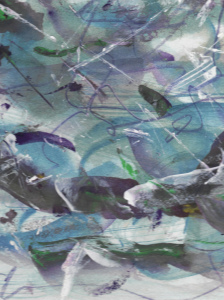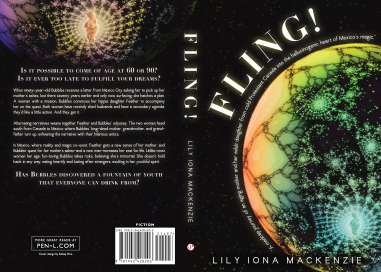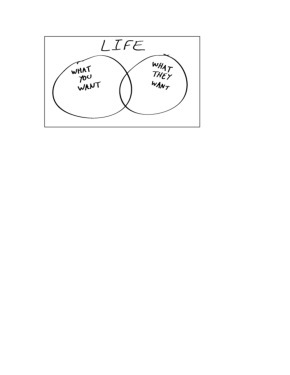Lily Iona MacKenzie's Blog, page 52
January 19, 2016
The Portal That Isn’t a Portal
Okay, I admit it. I’m a sucker for esoteric thought. For years I’ve been interested in Jungian psychology. I also love the occult and mysticism, whether it’s Christian, Jewish, Islamic, or something else. Dreams fascinate me.
I believe that we occupy just a tiny corner of the universe and there may be alternate/parallel worlds. I think there is likely a life beyond this one, though I have no idea what it is. I’m sure that “miracles” occur, occasions when something outside of ordinary reality intervenes and shakes things up a bit. The Christ story might be one of those events. I don’t know. It’s all speculation, but it does enliven the quotidian.
This impulse of mine led me to read Patrice Chaplin’s book The Portal: An Initiate’s Journey into the Secret of Rennes-le-Chateau. It’s heralded as being an account of her initiation into a secret society that has included, apparently, such luminaries as Jean Cocteau, Salvador Dali, and Umberto Eco. Women have also partaken of this arcane group.
You may be wondering, as I did, what is Rennes-le-Chateau? According to
 http://www.renneslechateau.nl/mystery-of-rennes-le-chateau/, “At the end of the 19th century, Bérenger Saunière, the poor parish priest of Rennes-le-Château, all of a sudden started spending a lot more money then he could ever have earned performing his normal duties. He had been assigned to this tiny village in the south of France at the age of 33 and had spent his first few years there in piety and poverty. According to his meticulously kept accounting books, in February 1892 he had a debt of 105 francs and 80,65 francs in his ‘fonds secrets’ (savings). That all changed in the 1890s. From that time on his surviving papers and accounts record a total expenditure of some 660,000 francs, equivalent to EUR 2,500,000 today. He would spend up to 50,000 francs in one month in some periods. His salary as a priest was 900 francs per annum.”
http://www.renneslechateau.nl/mystery-of-rennes-le-chateau/, “At the end of the 19th century, Bérenger Saunière, the poor parish priest of Rennes-le-Château, all of a sudden started spending a lot more money then he could ever have earned performing his normal duties. He had been assigned to this tiny village in the south of France at the age of 33 and had spent his first few years there in piety and poverty. According to his meticulously kept accounting books, in February 1892 he had a debt of 105 francs and 80,65 francs in his ‘fonds secrets’ (savings). That all changed in the 1890s. From that time on his surviving papers and accounts record a total expenditure of some 660,000 francs, equivalent to EUR 2,500,000 today. He would spend up to 50,000 francs in one month in some periods. His salary as a priest was 900 francs per annum.”
There is much speculation as to where these funds came from. Saunière did discover some ancient documents in and around his church. Some have thought they proved that Jesus and Mary Magdalene had produced a child. Their offspring began the divine bloodline that ended in France. It’s speculated that Saunière then blackmailed the Vatican, and that was the source of his funds. This is only one of several inventions, but Chaplin also claims that Saunière was part of this ancient secret society she became part of.
The Portal is presented as if it’s a memoir of Chaplin’s participation in visiting these eleven ritual points on the Venus Magic Square. It comes complete with a female guide/initiate who leads the author from one point to the next and ensures that she meets the requirements of the journey. I didn’t believe it for a minute. For me, the narrative seemed more of a fiction. A serious “initiate” into a revered tradition would not exploit the experience in this way.
I have no complaint if Chaplin wishes to masquerade as one who has made a revelatory descent. But I like REAL mysteries, not invented ones. Yes, I do suppose there are true noviates into certain mysteries, but they remain mysteries because lengthy preparation has to be made before such a voyage can occur. And those initiates know how to keep a secret!
Filed under: Links Tagged: Bérenger Saunière, initation, jean cocteau, myticism, occult, Patrice Chaplin, salvador dali, The Portal, The Portal: An Initiate’s Journey into the Secret of Rennes-le-Chateau;, umberto eco








January 11, 2016
How Can Anyone Out Iago Iago?
I’m usually not drawn to a book series, and the only reason I chose Edward St. Aubyn’s The Complete Patrick Melrose Novels is because I got a great introductory deal from Audible. All five of these books were on one tape for the same price I would have paid for a single audio edition. The Scot in me couldn’t resist getting a deal, and I thought I could tolerate listening to it during my long commutes in rush hour traffic to and from San Francisco.
Another bonus? The narrator is outstanding, one of the best I’ve experienced. He made each character distinct with his wide-ranging dialects and varied voices. I couldn’t stop myself from entering this unforgettable world of English aristocratic society with its many quirks and mannerisms. It made me grateful for my own Canadian lower middle class upbringing. Prestige and wealth don’t necessarily protect us from cruelty or guarantee a satisfying life.
As the collection’s title suggests, Patrick Melrose is the central focus in these five works. He’s a piece of work himself, struggling to break free from the nightmare it was to be the son of David, one of the most monstrous characters I’ve encountered in literature. Iago seems like a saint next to David.
While the early sections capture Patrick’s unhappy childhood years and his young adulthood as a consumer of every illicit drug imaginable, they do so with riffs of dark humor and extraordinary grace. St. Aubyn himself is wicked in his way with words. I was constantly amazed at his stunning ability to create original metaphors. In one passage, when Patrick was visiting New York so he could pick up his dead father’s ashes, skyscrapers’ windows remind him of crossword puzzles. I’ll never view a skyscraper in the same way again.
I eventually bought the complete works for my husband to read, and he inhaled them over the holidays during our time on the Mendocino coast. He was constantly reading me passages that blew us away with their tartness, insight, and style. St. Aubyn is no ordinary writer. He inhabits a class of his own that he’s created in this series.
Filed under: Links Tagged: British aristocracy, Edward St. Aubyn, iago, Patrick Melrose, The Complete Patrick Melrose Novels








January 4, 2016
The Writer as Traveler
My husband and I like to travel when we have the time and money. We’ve managed to visit St. Petersburg, Moscow, the Atlas Mountains in Morocco, Marrakech, Fes, Rabat, Istanbul, the entire Aegean/Mediterranean coast off Turkey, Norway, Sweden, Denmark, and many other countries.
I enjoy these excursions because they take me into physical and psychic territories I otherwise would not experience. It’s very different looking at pictures of the Hermitage Museum in St. Petersburg or of Mosco w’s Red Square. The photos give viewers a sense of these places. But actually being there offers a whole other perspective. I never could have appreciated how large the Hermitage is or the size of its collection of art and artifacts if I hadn’t actually made my way through the many rooms overflowing with the massive, breathtaking collection. I wouldn’t have understood what an undertaking it was to save all these treasures during WWII (and those who worked at the museum then did manage to do so). These are only a few of the surprises that those of us who love to travel experience during our journeys.
w’s Red Square. The photos give viewers a sense of these places. But actually being there offers a whole other perspective. I never could have appreciated how large the Hermitage is or the size of its collection of art and artifacts if I hadn’t actually made my way through the many rooms overflowing with the massive, breathtaking collection. I wouldn’t have understood what an undertaking it was to save all these treasures during WWII (and those who worked at the museum then did manage to do so). These are only a few of the surprises that those of us who love to travel experience during our journeys.
Writers face something similar when they enter the worlds they create in their fic tions, whether long or short. Each story offers settings, characters, objects, and interactions that they never would have known about if they hadn’t set forth on this voyage of discovery. While I had visited Mexico before I started writing my novel Fling!, it was only through capturing my imagined Mexico in the narrative that I felt a deeper connection emotionally to the land and its people. Somehow, by exploring Mexican settings and traditions, such as Day of the Dead, I knew more intimately the place and its inhabitants.
tions, whether long or short. Each story offers settings, characters, objects, and interactions that they never would have known about if they hadn’t set forth on this voyage of discovery. While I had visited Mexico before I started writing my novel Fling!, it was only through capturing my imagined Mexico in the narrative that I felt a deeper connection emotionally to the land and its people. Somehow, by exploring Mexican settings and traditions, such as Day of the Dead, I knew more intimately the place and its inhabitants.
Just as travel in the external world enlightens us and gives us deeper experiences of foreign surroundings, so too does writing provide something similar. When the story begins to establish itself, I feel a similar excitement and curiosity as when I’m traveling. I’m always amazed at what I learn through these characters that take shape on the computer under my fingertips. They open up new vistas and possibilities not only for me but, hopefully, for my readers. And that’s one of the reasons why I write: to be surprised and edified.
Filed under: Links








December 28, 2015
Seeking Wisdom from Seals
My husband and I have just returned from five glorious days at a house we rented overlooking the ocean at Sea Ranch, an enclave on California’ s Mendocino coast. This escape from urban holiday craziness has become an annual ritual for us. And for the time we’re there, we’re actually transported not just into a different location but also into an altered psychic space.
s Mendocino coast. This escape from urban holiday craziness has become an annual ritual for us. And for the time we’re there, we’re actually transported not just into a different location but also into an altered psychic space.
Most of the usual daily routines fall away and we replace them with ones that fit our new surroundings. Instead of working out on our stationary bike or at the gym, we take long walks on the bluff trail overlooking the ocean, mesmerized by how the sun polishes the sea’s surface to a high gloss and the thundering surf. At some point, we pause to watch the seals lounging on the beach, huddled in groups of  20 or more. Some flop into the ocean in search of food or for a quick dip, but most seem content to just plotz. I understand their motivation. They offer a wonderful model for what I’m seeking in these few precious days by the sea.
20 or more. Some flop into the ocean in search of food or for a quick dip, but most seem content to just plotz. I understand their motivation. They offer a wonderful model for what I’m seeking in these few precious days by the sea.
Limited external stimulation. Maximum time for internal reverie.
Since we’re experiencing the last few days of 2015, I’m also reflecting on what I’m leaving behind. For over 30 years, I’ve been teaching part-time at Bay area colleges, though mainly at the University of San Francisco. I’m not quite ready to say the word retire, but I plan to take what may be an extended leave of absence from the writing class I teach there. I’ve also resigned from my duties as vice president of the part-time faculty union.
These are big steps for me. I’ve been working all my life, and while I’ll continue doing so in various new contexts (writing, after all is work, as is editing, teaching writing workshops, and tutoring), my income from the classroom, etc., will be gone. Apparently these changes are stirring up early deprivation fears as I’ve had several dreams about not having enough money and needing to find work.
I do look forward to devoting more time each day to my various writing projects and to expanding my marketing outreach for Fling! as well as for the novel I’ll be publishing in 2016, Bone Songs. I feel ready for these major changes, but it’s always a challenge to shift one’s focus, and I’m sure I’ll run into many of them as I shift gears.
I wish everyone a rich and rewarding new year!
Filed under: Links Tagged: california's coast, mendocino, sea ranch, seals, writing








December 21, 2015
Words as Animals
I recently read the book Words as Eggs by Jungian analyst Russell Lockhart. The idea for the work, and the chapter from which the title comes, originated in one of Lockhart’s dreams. A voice in his dream said “Do you not know that words are eggs, that words carry life, that words give birth?” (92) Lockhart later points out that this dream revelation isn’t exactly new in the larger scheme of things. In the beginning, it’s rumored that God spoke the world into existence: “the word is seed and gives birth to life and living things” (92). As eggs, words are constantly delivering new ideas and thoughts, filling our minds with possibilities and worlds we otherwise wouldn’t have access to.
A writer, I’m fascinated with anything to do with words and how they inform, form, and reform our surroundings—and us. They are magical and ordinary simultaneously, both grounding us in their multiple meanings as well as suggesting possibilities that seem limitless. That’s one reason why poetry and fiction in particular have such a profound grip on our imaginations and on us. In his exploration of his dream announcement, Lockhart does a compelling job of taking the reader into the soul and roots of language, demonstrating how mysterious and complex these 26 letters of the alphabet are that have an endless capacity to change shape.
So when I recently had an auditory dream that said “words are animals,” my antennae went up and the animal in me growled. What was the dream trying to convey by making this analogy?
 Unlike humans, animals aren’t governed by consciousness. They simply exist, functioning instinctually, motivated by immediate needs: hunger, shelter, survival. Also unlike most humans, animals follow their impulses. Their innate drives are their engines. They just do whatever they need to do as they live each day.
Unlike humans, animals aren’t governed by consciousness. They simply exist, functioning instinctually, motivated by immediate needs: hunger, shelter, survival. Also unlike most humans, animals follow their impulses. Their innate drives are their engines. They just do whatever they need to do as they live each day.
How then are words similar to what I’ve just described? If animals, at least domesticated ones, allow us to corral them, to absorb some of their otherness, their wildness, then words must give in to our domination in similar ways. The very idea that we are abstracting something vital from the language we use in our attempt to create order out of the chaotic mess that unruly letters can make saddens me. We’re draining something intuitive and spontaneous from the method we use to communicate with others and with ourselves.
Is the dream suggesting that as we domestic words, as we drain their animal characteristics from them, we are civilizing ourselves too much, becoming more alienated from our animal origins and perhaps coming to resemble more the robotic gadgets we’re surrounded by? I don’t have any final answers, but I’m curious if others have thoughts about this subject.
Filed under: Links Tagged: instinct, russell lockhart, words as animals, words as eggs








December 14, 2015
Busting through Barriers To Story
I’ve been so busy taking care of marketing demands for Fling! and finishing up my semester of teaching that I haven’t had time to write new material, fiction or otherwise. Prose, non-fiction, is easy for me to produce. I can spin out words and sentences that end up making sense, as I’m doing here.
 But writing fiction? It’s like digging a ditch or chipping away at the concrete of my brain to find a way back into a story. That’s why I usually have several projects in motion. I move back and forth between them. When I run into a dead end with one, I can enter a vein in another, carried along until something stops me again.
But writing fiction? It’s like digging a ditch or chipping away at the concrete of my brain to find a way back into a story. That’s why I usually have several projects in motion. I move back and forth between them. When I run into a dead end with one, I can enter a vein in another, carried along until something stops me again.
Still, it’s difficult to enter the almost trance-like state that enables me to generate new material and activate my imagination. There’s always a barrier I have to break through first before the narrative takes on its own energy, carrying me along with it. I’m assuming most writers experience this kind of resistance at some point. At its extreme, the resistance becomes dreaded writer’s block and takes us over.
Fortunately, it’s such a frequent visitor that I’m rarely overwhelmed when it happens. The secret is to not give the obstacle it tries to construct any power. I keep writing no matter what, even if it turns out to be gobbledygook at first. Freewriting is one strategy I use to soar past this opposition and find my way back into story. Once I do, I’m good until the next time this obstruction appears.
Filed under: Links Tagged: freewrite, story, writer's block








December 7, 2015
There’s No Snoozing During Siesta
I hadn’t seen the movie (and it doesn’t appear to be available now), but a friend recommended the novel Siesta, and I just finished reading it. As another reviewer has pointed out, it’s difficult to discuss plot without giving away too much.
I was amazed at Patrice  Chaplin’s skill at weaving together past and present and even future. She did it in a seamless way that, as a writer myself, I’m envious of. Her fast-paced prose also underscores the narrative’s tempo. I had trouble putting it down as I had to know what happened next.
Chaplin’s skill at weaving together past and present and even future. She did it in a seamless way that, as a writer myself, I’m envious of. Her fast-paced prose also underscores the narrative’s tempo. I had trouble putting it down as I had to know what happened next.
At the heart of the book is a love story that keeps getting more complex. Sylvia, the main character, clearly is self-destructive, caught in a compelling affaire that won’t let her go. I felt as if I had entered this nightmarish dream-like world with her that involved multiple characters. They seemed to be inner figures more than actual external persons that represented aspects of Sylvia herself. Fascinating read!
Filed under: Links Tagged: patrice chaplin; siesta; dream; nightmare; love story;








November 30, 2015
What’s in a Book Cover?
 In a recent interview, I was asked to discuss the cover art for Fling! and how it pertains to the story.
In a recent interview, I was asked to discuss the cover art for Fling! and how it pertains to the story.
It gave me an opportunity to explore more deeply the role this particular cover has in embracing the novel’s contents.
I knew that I wanted to get the Venus of Willendorf image somewhere on the cover because her shape resembles Bubbles’ body (Bubbles is the irrepressible 90 year-old character that steals the story), and it has a central place inside the sphere.
I’m not sure what process Kelsey Rice, the designer, went through in coming up with the cover, but she captured the overall feeling of the book. The contents are somewhat offbeat and quirky. The cover mirrors those qualities. I also love the way Rice inserted text that hugs the partial sphere: “A madcap journey of an aging mother her adult daughter from cold Protestant Canada into the hallucinatory heart of Mexico’s magic.”
I also think the colors capture the feeling I wanted to convey about Mexico, including the mysterious, almost phantasmagoric quality of the country. The black surrounding the sphere has minute flashes of light that suggest the heavens and how we all emerge out of darkness, just as these characters do.
Filed under: Links Tagged: mexico, Mexico's magic, venus of willendorf








November 24, 2015
The Imagination = Fountain of Youth
“Logic will get you from point A to point B, but imagination will take you everywhere” – Albert Einstein.
I’ve been thinking about the importance of imagination not just as a writer and reader but also as a survival tool. And I wonder how and when this faculty first appeared. Of course, when discussing imagination, creativity is not far behind, for the two are handmaidens. The imagination needs our creative abilities in order to be realized, and to be fully creative, one needs imagination.

Kant, apparently, believed that the “faculty which takes pleasure in the contemplation of both beautiful and sublime objects is that which forms images” (The Critique of Judgment). Forming images is one aspect of inventiveness. Images have many components, usually based on something that we can name in the inner or outer world, like tree or bird or dragonfly. These entities then not only name something we can visualize, but they also can be metaphors or symbols that signify something more. In this sense, imagination really is an image-nation, inhabiting its own sphere.
The ability to dream and fantasize and discover has its foundations in our imaginative faculty. Think of how bland and one-dimensional this world would be if we couldn’t envision something more, something that hasn’t been considered before. This is what inspires me to write. Writing offers me an opportunity to exercise my own imagination and create something totally new in the process. I feel my all novels are a celebration of the imagination and where it can take us. For me, it is the fountain of youth. As long as we can imagine, we are young in spirit and able to transcend even this decaying body.
Filed under: Links Tagged: create, creative, dream, fantasy, imagination








November 16, 2015
Compromising on Compromise: The Power of Words
 Words and their origins and meanings have been on my mind a lot lately—not surprising for a writer. So when I was thinking of the word compromise the other day, I wondered why it’s become so abhorred by the ultra conservatives and their representatives in Congress.
Words and their origins and meanings have been on my mind a lot lately—not surprising for a writer. So when I was thinking of the word compromise the other day, I wondered why it’s become so abhorred by the ultra conservatives and their representatives in Congress.
For more insight, I turned to the Oxford English Dictionary in order to get closer to its origins and roots. “Com” means together. “Promittere” translates as to promise. Compromise then suggests a merger that eludes some of our current representatives.
For a country that prides itself on its democratic underpinnings, a government style that can’t exist for long without its people making concessions and agreements, its future doesn’t look too promising (pardon the pun on the Latin root “promise”). In a democracy, we must be able to listen to multiple perspectives and respect them. But we also must find middle ground where we can experience consensus.
Otherwise, we’ll live out some of the more negative meanings of the word: we’ll accept standards that are lower than what is desirable. We’ll get into situations where we’ll be compromised and be brought into disrepute or danger by indiscreet, foolish, or reckless behavior. We’ll be vulnerable and function less effectively as when a yo-yo dieting compromises our immune system.
I believe we have fallen into the negative meaning of the word and the health of our system depends on finding balance again.
Relationships, life, are all about compromise. In a family, it would be disastrous if we couldn’t come to some agreement that gives everyone a voice. No one ever get everything s/he wants. On our jobs. In our intimate interactions. Compromise. It’s the only way we can survive.
Filed under: Links Tagged: compromise, congress, democracy, relationships, to promise, together











